How did a simple shepherd become the most influential king of Israel and the ancestor of the Messiah?
The life of David is one of the most exciting, complex, and inspiring stories in the entire Bible.
His journey is marked by faith, fall, redemption, and eternal purpose.
In this article you will discover who he really was King David in the Bible, why it remains a spiritual touchstone, and how its story transcends time to impact your life today.
Who was King David and why is he so important?
King David is one of the most influential and complex figures in the entire Bible. A shepherd, musician, warrior, king, and poet, his life is marked by moments of great faith and courage, but also by errors and restorationHe was the second king of Israel and the first to unify the nation under a stable monarchy, establishing Jerusalem as its spiritual and political capital.
His importance transcends his time: David is mentioned more than a thousand times in the Scriptures and is considered a messianic type, since Jesus Christ would be born from his lineage. He combines power and humility, justice and mercy, leadership and devotion. His legacy endures not only in the history of Israel, but in the faith of millions to this day.
The figure of David in biblical and theological history
David is not only a historical figure, but also a theological reference pointHis life reflects the heart of the biblical message: a God who chooses the humble, restores the fallen, and fulfills his promises. As God's anointed king, David represents the divine authority over his people and the hope of an eternal kingdom.
In Christian theology, David is central to understanding Jesus' role as the Son of David, the promised king who would establish a kingdom without end. His relationship with God, captured in the Psalms, becomes a model of prayer, worship, repentance, and living faith.
What does his life teach us about God, sin, and grace?
David's life is a powerful testimony that God does not seek perfection, but hearts willing to obey Him and sincerely repent.Although he committed serious errors such as adultery with Bathsheba and the murder of Uriah, his reaction was not to justify himself, but to humble himself before God.
This teaches us that sin has consequences, but God's grace is deeper than our fallsThrough David, we see that God can use imperfect people to accomplish eternal purposes, and that genuine repentance opens the door to restoration.
David, as a biblical figure, challenges us to live with a heart conforming to God's: sensitive to his voice, firm in faith, and surrendered to his will.
Historical and political context
The period of the judges and the transition to the monarchy
Before the reign of David, Israel lived under a tribal system led by judges, men and women raised up by God in times of crisis. This period, described in the Book of Judges, was marked by cycles of infidelity, oppression, repentance and liberation.
Over time, the people asked for a king like the other nations (1 Samuel 8), pointing to a crucial transition from a theocracy to a monarchyAlthough God warned of the dangers of having a human king, He allowed this decision as part of His redemptive plan. This transition created the perfect framework for the emergence of David, a king after God's own heart.
Israel before the reign of David
Before David, Israel faced tribal division, constant foreign threats (like the Philistines) and a fragile national identitySaul, the first king, was anointed by the prophet Samuel, but his disobedience and lack of character spiritually disqualified him from reigning.
Saul unified the people on some level, but He lacked the vision and fidelity to consolidate the kingdomIt was in the midst of this instability that David emerged, secretly prepared and chosen by God to raise a nation on solid spiritual foundations.
Samuel, Saul and the Rise of the Young Shepherd
Samuel was the last judge and a key prophet in the monarchical transition. He was the one who anointed both Saul and David, guided by the voice of God. Saul, although chosen by the people for his appearance, failed by directly disobeying divine commands.
When God rejected Saul, Samuel was sent to Bethlehem, to the house of Jesse, to anoint one of his sons. There, in the midst of the forgotten sheep fields, God chose the youngest, the least expected: David, marking the beginning of a new stage for Israel and for the history of redemption.
David's humble origins
The anointing by Samuel as king
David was anointed secretly by Samuel while he was still a young shepherd (1 Samuel 16). This anointing was not only symbolic, but the beginning of a calling that would develop with time, trials, and maturityAlthough he did not take the throne immediately, this divine election confirmed that God looks at the heart, not at appearances.
David as a shepherd in Bethlehem
David's work as a shepherd in the fields of Bethlehem was the school of spiritual and practical preparation for leadership. There he learned to protect, guide, and fight for what had been entrusted to him, qualities he would later apply as a king.
Furthermore, his communion with God in solitude made him a sensitive and dependent worshiper of the Lord, which is reflected in the Psalms. Faithfulness in small things was key to his future promotion.
Messianic typology from his youth
From his adolescence, David begins to prefigure the Messiah:
- Anointed by the Spirit
- Pastor of the people
- Brave warrior who defeats the enemy by faith, not by human strength
- Rejected and persecuted before being exalted
- Composer of inspired hymns
Just as David was the king chosen and prepared in secret before being revealed to the people, so too Jesus lived in humility before manifesting his eternal kingdom. David's early life is a powerful typology of the Son of David who would come to reign forever.
David and Goliath: Courage Driven by Faith
The Challenge of the Philistines
The Philistines, constant enemies of Israel, challenged Saul's army by sending their champion, Goliath of Gath, a giant warrior who intimidated and ridiculed God's people for forty days (1 Samuel 17). No one dared to confront him, and fear paralyzed the Israelite army. This critical moment exposed the lack of faith and leadership of King Saul and his army.
David's faith in the face of the army's fear
David, still young, arrived at the camp to bring food to his brothers and heard the Philistine's challenge. His reaction was very different from that of the soldiers: He did not see an invincible giant, but an enemy who dared to challenge the living God. His courage was not born of pride, but of absolute trust in God.
Unarmored and with a sling in hand, David faced Goliath declaring:
“You come to me with sword and spear, but I come to you in the name of the Lord of Hosts.” (1 Samuel 17:45).
His victory was a public demonstration of the power of faith in the face of human fear.
Spiritual Lessons from the Confrontation with Goliath
- True faith does not need perfect conditions to act.
- Spiritual courage is born from an intimate trust in God.
- External giants can only fall when faced with internal dependence.
- David teaches us that obedience in secret prepares us for great battles in public.
The story of David and Goliath remains one of the most inspiring in the entire Bible because it reminds us that It is not the strength of man, but the presence of God that brings victory.
David at Saul's court
Musician, warrior and squire of the king
After his victory, David was taken to King Saul's court. Initially he was squire and musician, called upon to play the harp and soothe the king's bouts of spiritual anguish (1 Samuel 16:23). His presence brought relief and peace, and he soon gained favor among the people for his military victories.
David was also a brave commander in the army, but its growing popularity caused deep jealousy in Saul, who began to see him as a threat.
Friendship with Jonathan
One of the most significant bonds in David's life was his friendship with Jonathan, the king's son. Despite being the legitimate heir to the throne, Jonathan recognized the divine call upon David and loved him like a brother (1 Samuel 18:1-4).
Their friendship was:
- Faithful in the midst of danger
- Protector against the wrath of Saul
- Example of loyalty and selfless love
Jonathan is a key figure in David's spiritual and emotional growth during his most difficult years.
The persecution by Saul
David's military success and God's favor unleashed Saul's fury. He attempted to kill him on several occasions:
- Throwing a spear at him while playing music.
- Sending assassins to your house.
- Chasing him through the desert and mountains.
During this time, David lived as a fugitive, depending on God and developing a firm faith in the midst of suffering. Despite having opportunities to kill Saul, David decided to honor God's anointing upon him, showing integrity and fear of the Lord.
This stage prepared David not only as a military leader, but as a king with a broken and humble heartHis time at court and persecution strengthened his character and his communion with God.
Years of exile and character development
Shelter in caves, deserts and enemy territories
During his flight from Saul, David lived as a stranger, hiding in caves like Adullam, wandering through the Ziph Desert or seeking asylum even among enemies like the Philistines at Gath (1 Samuel 21–24).
This period was of loneliness, anguish and absolute dependence on God, where many of his Psalms were written as cries in the midst of suffering.
In these years, God forged his character far from the throne, but close to his presence, teaching him to trust, hope and obey even when he does not see the fulfillment of the promises.
Leader of faithful and marginalized men
In the cave of Adullam, David became the leader of a very particular group:
“all who are afflicted, in debt, and bitter in spirit” (1 Samuel 22:2).
With them he formed his group of brave men, who would later be the basis of the military leadership of his kingdom.
David not only attracted followers, formed in character, faith and loyalty. He himself was refined as a leader who ruled not by title, but by service and example.
His decision not to kill God's anointed
On at least two occasions, David had the opportunity to kill Saul (1 Samuel 24 and 26), but chose to respect divine authority, saying:
“I will not stretch out my hand against my lord, for he is the Lord’s anointed.”
This decision reflects your reverent fear of God and his patience in waiting for the perfect time. David teaches us that God's will is not to be fulfilled by impatient human means, but with obedience, humility and faith.
Accession to the throne
Death of Saul and Jonathan
The death of Saul and Jonathan in battle against the Philistines (1 Samuel 31) marked the end of an era and the fulfillment of the beginning of David's calling. However, his reaction was of genuine mourning, not a celebration.
David composed an elegy called “The Song of the Bow” (2 Samuel 1), which demonstrates his respect for authority and his love for Jonathan.
Reign in Hebron over Judah
After Saul's death, David was proclaimed king, but only of Judah, and reigned from Hebron for seven and a half years (2 Samuel 2:1–4).
During this time, there was conflict between the house of Saul and the house of David, but He hoped for unification without imposing his leadership by force.
His time in Hebron was a period of consolidation, political wisdom and strategic growth, in preparation to rule all Israel.
Unification of the kingdom and establishment in Jerusalem
As time went on, all the tribes of Israel recognized David as king, and he was anointed a second time as king over all the people of Israel (2 Samuel 5:1–5).
David conquered Jerusalem and established it as the political and spiritual capital, known as the City of David.
From there, a reign of unity, territorial expansion and national worship, even moving the Ark of the Covenant to Jerusalem, which symbolized that God was at the center of the kingdom.
David didn't just win battles: won hearts and left a legacy of leadership based on obedience, justice, and worship.
The reign of David
Conquest of Jerusalem and transfer of the ark
One of David's most strategic and symbolic decisions was the conquest of Jerusalem, a neutral city that did not belong to any tribe (2 Samuel 5:6–10). This made it the perfect place to unite all the people under a single capital. The city quickly became the political and spiritual center of Israel, and it was renamed “the City of David.”
Shortly after, David organized the transfer of the Ark of the Covenant to Jerusalem with great reverence and joy (2 Samuel 6). Despite a failed attempt due to carelessness in sacred details, David corrected his error and He showed fear of God and passion for his presenceThe arrival of the ark was celebrated with dancing, sacrifices, and worship, reflecting their desire for God to be at the heart of their government.
Territorial expansion and national stability
During his reign, David achieved expand Israel's borders beyond what Saul had reachedHe defeated historical enemies such as the Philistines, Moabites, Ammonites, Edomites and Syrians (2 Samuel 8), establishing peace, respect and geopolitical influence.
His leadership brought an era of unprecedented national stability, laying the foundations for the lasting peace of his son Solomon's reign. More than a conqueror, David was a unifier who knew how to balance military power with spiritual wisdom.
Justice, worship and wise administration
David ruled not only with strength, but with profound awareness of their responsibility before GodThe Bible says that:
“David reigned over all Israel, administering justice and equity to all his people.” (2 Samuel 8:15).
He established an organized administration with military chiefs, priests and advisors, demonstrating skills of leadership, delegation, and long-term vision.
At the same time, his heart remained focused on God. He was a promoter of organized worship, Levitical musicians, and dreamed of building a temple for the Lord, although God reserved that task for Solomon.
However, David prepared the plans, the materials and the heart of the people for that sacred project.
His reign was a model of how Politics, faith and justice can walk together under God's guidance.
God's covenant with David
The promise of an eternal lineage (2 Samuel 7)
In one of the most significant moments of his life, David expressed his desire to build a house (temple) for the Lord. But God responded through the prophet Nathan with an even greater promise:
“I will make you a house… and I will establish the throne of your kingdom forever.” (2 Samuel 7:11–16).
This pact, known as the Davidic Covenant, guarantees that one of his descendants would reign eternally over the people of God. It was not just a blessing for David, but a promise with profound messianic implications.
God assured him:
- A big name among the nations
- A descendant who would build a temple
- A eternal throne that would not be removed
This covenant becomes the axis of Israel's prophetic hope.
The messianic prophecy fulfilled in Christ
Centuries later, the gospels declare that Jesus is the fulfillment of the covenant with David.
- Matthew 1:1 calls him “Son of David”
- Luke 1:32–33 says that God “He will give him the throne of his father David”
- Acts 13:22–23 states that of David's descendants “God, according to his promise, raised Jesus as Savior.”
Christ not only physically descended from David, but He fulfilled the ideal of the eternal king: righteous, holy, humble, and obedient unto death. His resurrection and exaltation to the heavenly throne forever seal the fulfillment of the promised eternal reign.
David as a figure of the coming Messiah
David is a messianic figure or type, that is, his life and reign prefigure the true King who would come:
- Was anointed by God as Jesus was by the Spirit
- Was shepherd before shepherding a people, as Jesus is the Good Shepherd
- Was persecuted and humiliated before being crowned, just like Jesus
- Established a worship centered on the presence of God, as Christ does
- Was man of war who paved the way for a kingdom of peace, just as Jesus overcame sin and prepares the eternal kingdom
Thus, the covenant with David is a promise that transcends history to reveal to us the King of kings and Lord of lordsThe story of David points, prophetically and theologically, to Christ's eternal rule over his church and the world.
Sins, consequences and restoration
The sin with Bathsheba and the murder of Uriah
Despite his closeness to God, David committed one of the most serious sins of his life when, upon seeing Bathsheba from his palace, He gave in to lust, committed adultery with her, and then tried to cover it up.. When this failed, she ordered her husband, Uriah the Hittite, was put in front of the battle to die (2 Samuel 11).
It was a premeditated act of abuse of power, betrayal and murder, marking a profound break in his spiritual reign.
Confrontation of the prophet Nathan
God did not ignore this sin. He sent the prophet Nathan, who used a parable to make David acknowledge his guilt (2 Samuel 12). When Nathan said to him:
“You are that man”,
David didn't deny, excuse, or blame others. He just said:
“I have sinned against Jehovah.”
This confrontation reveals the love of God that correct to restoreAlthough the forgiveness was immediate, the consequences were not avoided, including the death of the son conceived with Bathsheba and grief in his home.
Deep Repentance and Psalm 51
David's contrite heart was reflected in the Psalm 51, one of the deepest confessions in the Bible.
In it, David cries out:
“Create in me a clean heart, O God.”
He does not ask for justification or minimize his fault, but throws himself completely into the grace of God.
This psalm has been a comfort to generations, showing that no sin is greater than God's mercy, and that true repentance produces spiritual restoration and renewal of the soul.
Family conflicts and later years
Absalom's rebellion and a father's grief
David's sin sowed disorder in his own family. His son Absalom, resentful and ambitious, organized a rebellion to usurp the throne (2 Samuel 15). Although David managed to escape, the conflict tore at his heart.
When Absalom died, David wept bitterly, saying:
“My son Absalom! Would that I were dead instead of you!” (2 Samuel 18:33).
His crying was not only for loss, but for the pain of a father broken by the price of sin.
Final advice to Solomon
In his final days, David left clear instructions to his son Solomon:
- Be strong and obey God's law (1 Kings 2:1–4)
- Administer justice and wisdom
- Complete the work he could not do: the temple
David did not hide the faults of the past, but he did invested in the future, guiding his son to get his reign off to a good start.
Preparation for the construction of the temple
Although God denied David the right to build the temple because he was a man of war (1 Chronicles 28:3), he prepared everything necessary: plans, materials, leaders, musicians and Levites.
He even motivated the people to give generously, and With a grateful heart he blessed the Lord publicly (1 Chronicles 29).
David understood that although he would not see the temple built, His legacy of worship and fidelity would mark generations.
His last years were a mixture of pain, wisdom, worship and eternal vision, leaving a deep mark on the spiritual history of Israel and on God's redemptive plan.
The death of David and his eternal legacy
His peaceful passing and transfer of authority
After a reign of 40 years, David died in Jerusalem, full of days and honored by the people (1 Kings 2:10). Before he died, he secured a orderly transition of power, designating his son Solomon as his successor.
He left clear spiritual and political instructions, and blessed God before the people, demonstrating that until the end he was a faithful worshipper and servant. His life, marked by struggles, defeats and victories, ended with peace, honor and a fulfilled purpose.
Mention of David in prophecies and gospels
David is one of the most cited characters in the entire Bible, and his name appears in:
- Messianic propheciesEzekiel 37:24 speaks of a “servant David” who will shepherd his people in the future.
- GospelsMatthew 1:1 presents Jesus as “Son of David,” emphasizing the prophetic connection.
- Messianic Psalms: Psalms such as 2, 22, 110, written by David, point directly to the person of Christ.
- Acts of the Apostles: Peter and Paul refer to David as evidence of God’s redemptive plan (Acts 2:25–31; 13:22–23).
The figure of David does not end in the Old Testament, but is key to the revelation of the gospel.
Its impact on Jewish and Christian faiths and biblical history
For the JewsDavid remains the ideal king: the leader who united Israel, made Jerusalem the sacred capital, and established a lineage awaited for generations.
For the ChristiansDavid is more than a king: he is a type of Christ, an example of living faith, deep repentance, and sincere worship. Her story shows that God can use imperfect people to fulfill eternal plans.
In the biblical storyDavid represents the pinnacle of spiritual leadership in Israel, the benchmark for all subsequent kings, and the heart that pleased God (Acts 13:22).
His legacy is not only historical, but eternal., as he continues to inspire generations to live with faith, humility, integrity, and passion for the presence of God. David wasn't perfect, but he was a man after God's own heart, and that's why his story lives on.
David as a psalmist and worshiper
Authorship of most of the Psalms
David was not only a king and warrior, but also a deeply spiritual poet and musicianHe is credited with the authorship of at least 73 of the 150 psalms, although many scholars believe that its spiritual influence extends even further.
These psalms express a wide range of human emotions, from joy to anguish, from deep regret to the purest praise.
His compositions were not only literary, but living prayers that flowed from his intimate walk with God in all kinds of circumstances:
- In the desert, fleeing from enemies
- On his throne, worshipping God for his victories
- In his falls, confessing his sins
- In his old age, reflecting on divine faithfulness
His heart according to God's
One of the most famous quotes about David is that he was a “a man after God's own heart” (1 Samuel 13:14; Acts 13:22). This description does not refer to perfection, but to its deep spiritual sensitivity:
- He loved the presence of God
- He desired to glorify God in his life and in his reign.
- He sincerely repented when he sinned.
- He recognized his constant need for divine grace and guidance.
The psalms he wrote reflect that tender, broken, and dependent heart of David. transformed pain into worship and battle into poetry, teaching us that the genuine worshipper is not the one who lives without faults, but the one who returns to God with his whole being.
Praise as an expression of faith and brokenness
David taught the people of Israel that praise was not just ritual, but an expression of the soul.
- He appointed musicians and Levites to worship God day and night (1 Chronicles 25).
- He established the harp, dance and songs as part of the cult.
- He showed us that we can praise in the cave, in the desert, in the palace, or in the midst of grief.
He Psalm 23, for example, reveals a shepherd who knows the God who guides and comforts. Psalm 51 shows a repentant sinner pleading for restoration. The Psalm 27 declares confidence when everything seems dark.
David made praise a way of life, and left a legacy that inspires all who wish to worship God sincerely, even when their soul is broken.
He taught us that true worship is not born of perfection, but of intimacy with God.
Spiritual relevance of King David
Archetype of godly leadership
David represents a model of leadership that combines authority with spiritual sensitivityUnlike other kings who ruled by force or ambition, David based his reign on God's will and the constant search for his presence.
He was a leader who:
- He consulted God before making decisions (1 Samuel 30:8)
- He recognized his spiritual dependence in war and peace
- Promoted worship as part of government
This leadership style makes him a Biblical archetype of how to lead with integrity, humility, and devotion, serving as a mirror for pastors, rulers and parents in any generation.
Model of genuine repentance
One of David's most striking traits was not his absence of sin, but his ability to recognize one's mistakes and humble oneself before God. When confronted by Nathan, he did not justify himself or blame others, but responded with brokenness and confession:
“Against you, you only, have I sinned” (Psalm 51:4).
This kind of deep repentance distinguishes him from other biblical characters. David showed that restoration does not come from hiding sin, but from confess it sincerely and return to the Lord.
Therefore, beyond his political or military legacy, David is a living testimony to the transforming power of grace.
Inspiration for leaders and believers today
David's life continues to speak powerfully to believers of all ages because it embodies the real tensions of the human soul:
- Faith vs. fear
- Success vs. failure
- Authority vs. humility
- Sin vs. grace
Whether in moments of victory or failure, David shows us that the secret of spiritual life is communion with God.
It is a source of inspiration for:
- Leaders who want to govern with integrity
- Christians struggling with guilt or pain from the past
- Worshippers who long for genuine intimacy with God
- People seeking redemption after making a mistake
David reminds us that God does not look for the strongest, but the most surrendered. His story is an invitation to live with a sensitive, passionate heart, always ready to return to the Father.
Was David a real historical figure?
Archaeological evidence (the Tel Dan stele)
For a long time, some scholars questioned the historical existence of King David, arguing that he could be a mythical or literary figure. However, in 1993, the Tel Dan Stele, a stone inscribed in Aramaic that makes direct mention of the “House of David” (Beit David), as a recognized royal dynasty.
This archaeological find, dated to the 9th century BC, is the first extrabiblical evidence confirming the historical existence of David as the founder of a royal line in Judah.
This discovery has been considered an archaeological milestone that strengthens the historical veracity of the biblical accounts related to David and his dynasty.
Perspective of critical and conservative biblical studies
From the academic criticism, opinions vary:
- Conservative studies They consider the biblical accounts to be historically reliable, especially when compared with consistent archaeological finds, genealogies, and textual traditions.
- Critical studies They argue that while David may have existed, biblical texts beautify or idealize their figure for theological and political purposes. However, even among the most skeptical, there is a growing consensus that David was a royal tribal leader whose existence left a mark on Israel's collective memory.
Both currents agree that The figure of David cannot be dismissed as fiction, since its influence is rooted in tradition, archaeology and multiple historical texts.
Its role in the religious and cultural history of Israel
Beyond archaeology or academic debate, David occupies a central place in the spiritual and national identity of Israel.
- Founded Jerusalem as capital and center of worship.
- Established a royal dynasty which would be a reference for future kings.
- Inspired a collection of sacred literature like the Psalms.
- It was the model of the expected Messiah, both in Judaism and Christianity.
His influence persists to this day in Jewish liturgy, Christian theology, music, art, and Middle Eastern politics. David's existence is not only a historical statement, but a reality with global spiritual impact.
David's legacy is so profound that his name remains synonymous with leadership, worship, and eternal promise.
Book recommendations about King David
📘 “David: Shepherd, Warrior, King, Poet” – Charles Swindoll
A spiritual biography that explores David's humanity and greatness, ideal for readers seeking practical inspiration from a biblical perspective.
📘 “David: A Man After God’s Own Heart” – Beth Moore
Profound and devotional, this book examines David's life with a focus on his relationship with God, his brokenness, redemption, and purpose, ideal for study groups and personal growth.
📘 “The Life of David” – AW Pink
A detailed theological analysis of David's character, trials, and faith, intended for readers seeking a thoughtful, doctrinal perspective on his life and reign.
Frequently Asked Questions About King David in the Bible
- How many years did David reign over Israel?
He reigned 40 years: 7 and a half years over Judah from Hebron, and 33 years over all Israel from Jerusalem (2 Samuel 5:4–5). - What psalms did David write and which are the best known?
At least 73 psalms are attributed to him, among them the most famous: Psalm 23 (“The Lord is my shepherd”), Psalm 51 (repentance), Psalm 27 (trust), Psalm 103 (worship). - Why is it said that David was “after God’s own heart”?
Because he sincerely sought to please God, he repented humbly, worshipped passionately, and depended spiritually on the Lord (1 Samuel 13:14; Acts 13:22). - What relationship does Jesus have with the lineage of David?
Jesus is a direct descendant of David according to the flesh (Matthew 1:1), and is the fulfillment of the eternal covenant made to David: a King who would reign forever. - What mistakes did David make and how did God respond?
He committed adultery with Bathsheba and had Uriah killed. He was confronted by the prophet Nathan, truly repented, and although there were consequences, God forgave and restored him. - What lessons can be applied today from David's life?
The importance of genuine repentance, humble leadership, authentic worship, and living with a heart surrendered to God. - What was David's greatest contribution to the people of Israel?
The unification of the tribes, the establishment of Jerusalem as a spiritual capital, and a legacy of worship that became the basis for centuries of faith. - What are the differences between the reign of David and that of Saul?
Saul reigned with insecurity, disobedience, and fear; David reigned with faith, dependence on God, justice, and a heart sensitive to divine correction. - Why couldn't David build the temple?
Because he was a man of war. God reserved that task for his son Solomon, although David prepared the materials and plans (1 Chronicles 28:3–6). - What kind of leadership did David exercise compared to other kings?
David led from the presence of God, with integrity, spiritual sensitivity, and a focus on service and worship. He was a model of leadership guided by obedience, not power.
Conclusion
The life of King David is much more than a series of historical events; it is a reflection of the human soul in its struggle to please God, despite the falls, the mistakes and the tests.
David teaches us that true leadership is born of humility, that genuine repentance opens the doors of restoration, and that A heart passionate about the presence of God can transform a nation… and the world.
His story lives on because connects us with grace, forgiveness and the promise of an eternal Kingdom which began in Bethlehem, was consolidated in Jerusalem, and was fulfilled in Christ.
What part of David's life has impacted you the most?
Leave us a comment and share how their story has inspired your walk with God or your personal leadership. Your testimony may encourage others.
Discover How the Bible Can Transform Your Life
- Bible Study – explore the teachings of the Bible and find answers to life’s challenges.
- Fundamental Beliefs – delves into the principles that have guided millions through the centuries.
- Spiritual Growth – Strengthen your faith with studies designed to bring you closer to God.

Discover How the Bible Can Transform Your Life
- Bible Study – explore the teachings of the Bible and find answers to life’s challenges.
- Fundamental Beliefs – delves into the principles that have guided millions through the centuries.
- Spiritual Growth – Strengthen your faith with studies designed to bring you closer to God.


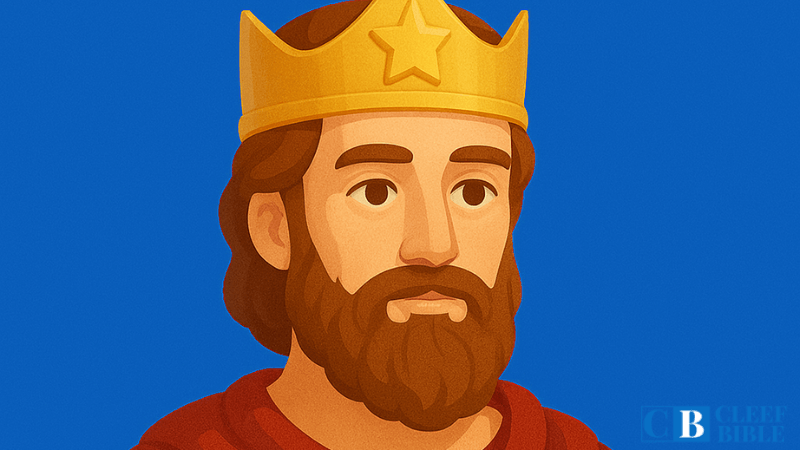
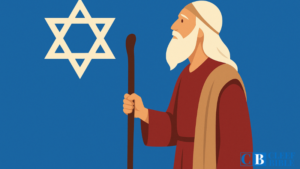











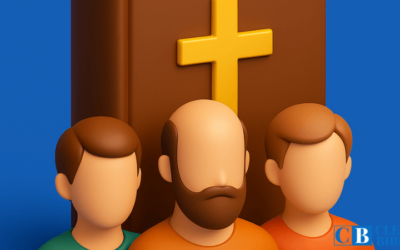





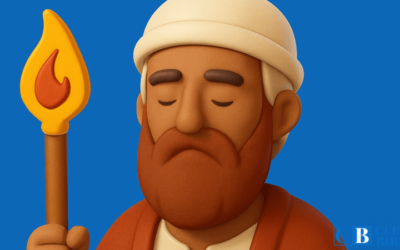




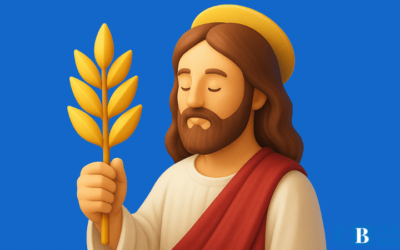
0 Comments